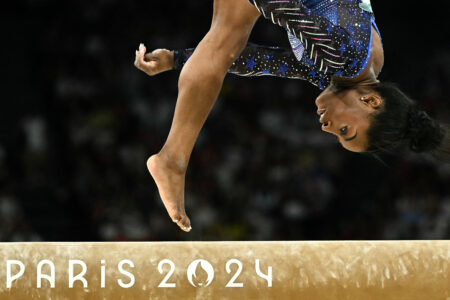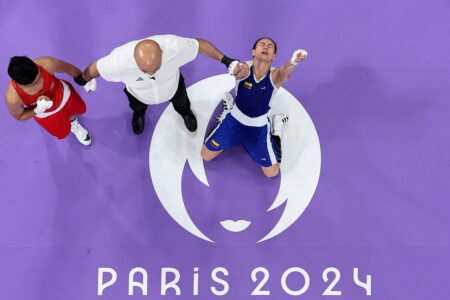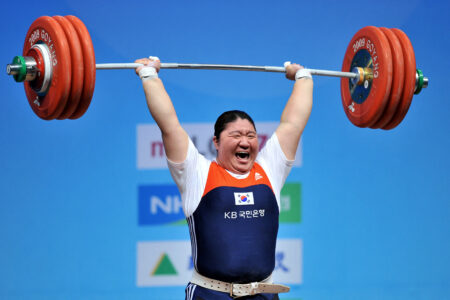
Julien Alfred won Saint Lucia’s first-ever Olympic gold when she claimed the women’s 100m title at Paris 2024.
That feat would not have been possible without her coach, Edrick Floreal, who encouraged her to leave her home country to pursue a degree and sprinting career at the University of Texas.
Moving abroad became one of the best moves Alfred has made in her career.
It’s the same for Anush Agarwalla, an Indian equestrian Olympian. He is a testament to this statement.
Want to become an Olympian? Go study abroad
When you think of India, the first sports that come to mind might be cricket or field hockey. There, equestrian is a sport that’s, in Agarwalla‘s words, “out of sight and out of mind” for many.
In an interview with Vogue India, Agarwalla shares that while living in India, he was told that he would never make it as an equestrian sportsman, especially in dressage.
Dressage is a form of horse riding where you encourage the horse to take strong upward steps with bounce.
“Dressage does not have a rich history in India,” he says. “Equestrian is looked at as a sport where India does not excel.”
Born and raised in Kolkata, India, Agarwalla was always interested in animals. Trips to the zoo were frequent, and by the age of three, his parents would bring him to a golf club nearby his home, where he would be first introduced to horse riding.
At eight years old, he officially joined horse riding lessons. At 11, he went pro.
But there was one problem: there were few to no equestrian training centres in Kolkata.
View this post on Instagram
Unfazed by this challenge and determined to pursue this passion, he travelled to New Delhi, a two-and-a-half-hour flight, every school weekend between the ages of 11 and 16 to train. He later moved to Delhi to pursue riding more seriously, but soon realised he was far from where he needed to be to compete at a higher level.
When Agarwalla turned 17, he left India to train with Hubertus Schmidt, a renowned German dressage rider and Olympian, in Borchen, Germany.
“India is not developed in the equestrian sport,” says Agarwalla. “My parents and I decided that to pursue this sport, I would have to move abroad, and Germany was on the list.”
There, he would be able to compete, train, and study at a higher level.
While becoming a professional equestrian sportsman might have been the goal, having a formal degree was just as important.
Alongside training to become an Olympian, Agarwalla found time to earn a bachelor’s degree in economics at Paderborn University as well.

Agarwalla at the 2024 Paris Olympics opening. Source: Anush Agarwalla
The best parts about studying and training in Germany
Germany might be famous for its automotive industry, pretzels, and beer festivals, but many aren’t as familiar with the country’s dominance in the academic and equestrian fields.
Forty-eight German universities are listed on the QS World University’s 2025 World Universities Rankings. Germany also stands as the third most popular study destination among non-English-speaking countries, according to a DAAD report.
The bonus of studying in Germany is that it’s one of the cheapest countries in Europe to complete a degree. Better yet, tuition fees are famously low, and most are even free for international students.
In terms of equestrians, Germany is no stranger to nurturing their talent — proven by owning the most gold medals in the category in Olympic history. Including the Paris 2024 Summer Olympics, German riders have won 56 medals in Olympic history; amongst them, 29 are gold — one of which was won by his coach Schmidt in dressage equestrian during the Athens 2004 Olympics.
“The sport is extremely developed, and there’s even a whole system for training for it,” says Agarwalla.
Here, not only is he trained by a former Olympian and a veteran in dressage equestrian, but Agarwalla also gets to learn soft skills that are important to the sport and academics.
“Germans are known for discipline and punctuality. Being surrounded by those values has played a big part in forming my values while studying and training abroad,” says Agarwalla.
“You’ll see everyone reaching the stables on time to train. The best example is my trainer, Schmidt. He’ll be by the stables at 8 a.m. and give his all during training. It’s an energy that you automatically want to be around when you’re training.”
With Schmidt’s guidance, Agarwalla won India’s first team gold and individual bronze in dressage at the 2023 Asian Games. He also became the first and only Indian equestrian to compete in the dressage event at the 2024 Paris Olympics.
However, he did not make it to the medal round of the event.
Undeterred by this one shortcoming, Agarwalla is now training to compete in the 2028 LA Olympics.
And despite the years he’s spent in the sport, his passion for it burns all the brighter.
“Being a dressage rider is powerful and elegant at the same time. That’s why I love this sport and am dedicated to it,” says Agarwalla.
“Dressage is like performing ballet but on a horse. You have to become entirely in sync with your house and be able to dance with them. You’ll also have to learn to be expressive when doing dressage.”

Agarwalla pictured with his trusted horse, Manni, with whom he’s been training for the past seven years. The two have achieved many firsts together, especially Agarwalla’s first international win at the prestigious Grand Prix. Source: Anush Agarwalla
‘Pursuing an education is as important as becoming an Olympian’
While working towards participating in major competitions such as the Asian Games, World Championships, and the next Olympic Games, Agarwalla is also pursuing an MSc in Business and Economics.
“My dad pursued an MBA from the Wharton School of the University of Pennsylvania, so growing up around him influenced my decision,” he shares.
“On top of that, I’ve always been interested in how countries work. I want to know how policies are created and the reasons behind them from a business point of view.”
But how does one balance training to become an Olympian and maintaining academic standing?
For Agarwalla, it’s through hard work and dedication.
View this post on Instagram
“Becoming disciplined played a big part in balancing my schedule. For example, I had to get into a habit of waking up early at about 4:30 a.m. or 5 a.m., then studying in the morning for about an hour or two, and again at night,” he shares.
Ultimately, Agarwalla advises that the most important thing is to believe in yourself and have a good team or group of friends around you.
“If you’re disciplined, work hard daily, and stay consistent, anything is possible, and you’ll achieve your goals.”










